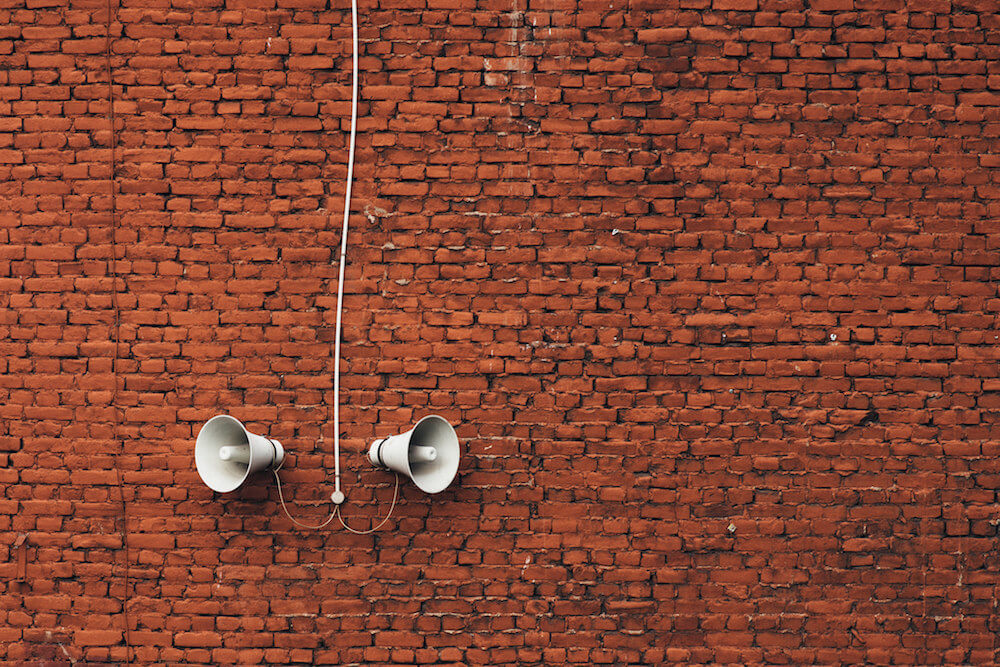Tomcat
Professional
- Messages
- 2,687
- Reaction score
- 1,038
- Points
- 113

The outside world constantly bombards us with information at various levels: images and sounds, touches and smells. The audiophone is one of the most persistent streams of information that we contact every day.
At the same time, we have almost no influence on what sounds we hear: we are surrounded by the hum of cars, the rumble of a subway car, conversations of neighbors in line, music from a colleague's headphones, the noise of a construction site ... Often we try to cover this background with our own - music or, for example, audiobooks.
All this cacophony haunts us all day, and there is little we can do about it.
At the same time, everything that we hear (whether we like it or not) affects our mood, psyche and even brain activity. We figure out what sounds are triggers and what they cause, why some sounds make you want to dance, while others make you cry, and how you can control the influence of the audiophone on your life.
Nature vs Nurture
People hear sounds in the same way (this is a physiological process), but they can perceive them in different ways - this already depends on the work of each particular brain. It is the brain that decides how to relate to each specific sound. Therefore, someone may find the singing of the same birds pleasant, while others may find it annoying. Our relationship to sounds is shaped by our upbringing, previous experiences and personal cognitive abilities.
There is a concept of "noise pollution": this is a situation when the noise produced by humanity and its "derivatives" becomes so loud, atypical and uncontrollable that it begins to disrupt the order of human life and other living beings. For example, research shows that prolonged exposure to noise-polluted spaces increases blood pressure and increases the risk of heart attack. This is due to the fact that a person does not get used to the level of the surrounding noise, but spends energy on suppressing it, which the body could direct in a different direction.
The very distinction between noise and sound (noise vs sound) for a person is not always innate and not natural - it depends on our previous experience. For example, we enter a cafe and hear a whole range of sounds - the coffee machine grinds the beans, the microwave beeps, people talk, the waiter reads the menu. We are used to them, so we hardly pay attention to them. And those who have never been to a cafe in a big city will likely find this background sound very stressful. Actually, even we, getting tired, sometimes lose the ability not to get irritated by this familiar, but still cacophony.
At the same time, there are sounds to which a person's reaction has been developed by evolution: for example, we find the grinding of nails on glass or a knife on a plate unpleasant. We react to them instinctively, on a subconscious level, because our genes have an association with the sound made by the claws of predators. But not all loud, annoying, or unwanted sounds are not necessarily negatively perceived by us. This may depend on the social context - for example, loud noises at a rock festival do not cause rejection among visitors.
Our memory can also transform our perception of sound. For example, a very unpleasant noise - a lawn mower, ice crusher, whatever - can evoke warm feelings and nostalgia if in the past it was associated with something pleasant. For the rest, this sound will remain an eerie noise.
In other words, how we perceive sound depends on many factors - psychological, social, biological and others.
Learning, mood and productivity
The sound background has a great impact on our life - even our ability to learn, our mood and activity at work depends on it.
In 1974, a study was carried out: two sixth grades studied at different ends of the building. One was quiet, while the other was constantly heard the noise of trains passing by. As a result, it turned out that schoolchildren who studied in silence were almost a year ahead of their peers on the level of knowledge from the noisy side. Children who grew up in noisier environments (like the howling of planes or the crashing of trains) read, speak, and show slower cognitive development than those who grew up in silence.
Sounds also affect productivity. Research shows that the hum of open spaces often impairs the ability of employees to concentrate, remember, solve complex problems, and cause real stress . The same constant noise in open office spaces is not only constantly distracting, but also interferes with concentration after the immediate irritant disappears.

Photo Stinging Eyes / CC BY-ND
Trigger sounds
Sound can often cause a reaction that we can hardly explain to ourselves, or which we even perceive unconsciously.
For example, there is a theory that the so-called "haunted house" effect can be caused precisely by sound, and by the "special" infrasound, sound waves, whose frequency is lower than that perceived by the human ear. In some situations, we may experience feelings of anxiety, fear, and “goose bumps” - not knowing why .
And for OCD (obsessive-compulsive disorder) patients, the entire sound world is often a source of all kinds of triggers that can cause anxiety and even affect overall ability to function. Often these are some completely everyday sounds - coughing, chomping, knob clicks, door slamming.
There is a special term in psychology - noise hypersensitivity. It works on several levels. The most obvious are unpleasant associations (often unconscious) that are associated with certain sounds, and it is they that cause anxiety in a person.
By the way, we are not necessarily talking about some separate sounds. Unpleasant associations can be caused by songs, even once beloved ones - for example, if you rehearsed a performance for a long time, and it eventually failed. Or if a dramatic life episode is associated with a beautiful melody in your memory. Then, when you hear the song again, you probably won't want to sing along with it.
The next level of reaction is flight (some sounds can cause fear, and the primal instinct, the desire to hide from danger, is turned on), irritation and stress (remember the sound with which a new email appears in the mailbox on a particularly busy work day).
As for the disorders associated with increased sensitivity to noise, they have a fairly wide range. For example, in people with sensory processing disorder, the most common sounds can cause completely unexpected reactions - this is due to the fact that the human brain processes external stimuli, but reacts disproportionately to them. Therefore, the sound of a bursting gum, to which a healthy person may not even pay attention, in a person with the disorder may cause a desire to immediately plug their ears.
Therapy in this case has almost nothing to do with how we hear sounds, but with how our brain perceives them. A person with increased susceptibility can hear sounds in the same way as everyone else, but perceive them as louder, annoying or annoying. Possible causes can be different - from migraines or unpleasant memories, to mental disorders.
One of the methods of dealing with increased susceptibility is to create the most comfortable environment around you, put the sounds that cause anxiety in the headphones, and turn them off when the feeling becomes completely uncomfortable. Repetition can reduce anxiety - the psyche gets used to the fact that there is no real discomfort associated with sound.
Then the process can be repeated in a less comfortable environment. But if we are talking about mental disorders, and not just about unpleasant associations, such experiments, of course, should be carried out only under the supervision of a doctor.
In the remainder
Industrialization, urban growth, technological revolution, acceleration of life - these are dozens of factors that have shaped our sound environment. His congestion affects the human psyche, cognitive abilities, attention and health.
Our perception of sounds is influenced by our environment, upbringing, mood, previous experience, as well as genes, biological predispositions, and even age.
Therefore, it can be helpful to listen to the silence, add white noise to your daily routine, and be more conscious about how your life is “voiced”.

